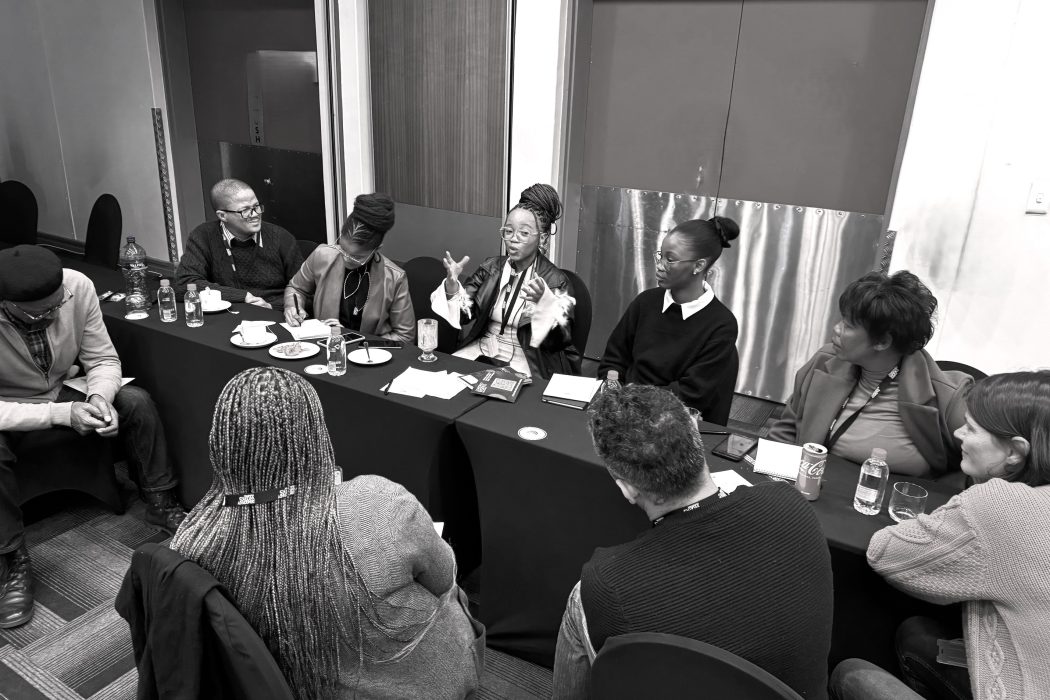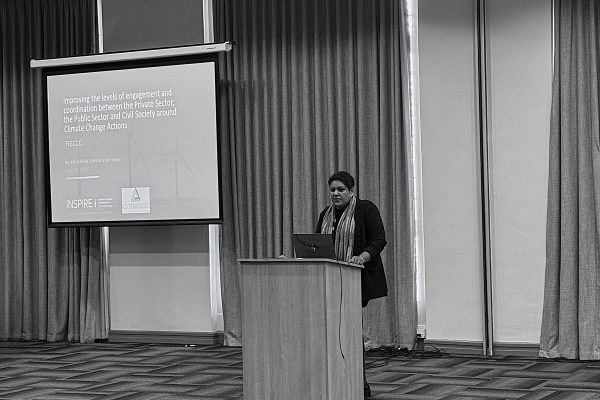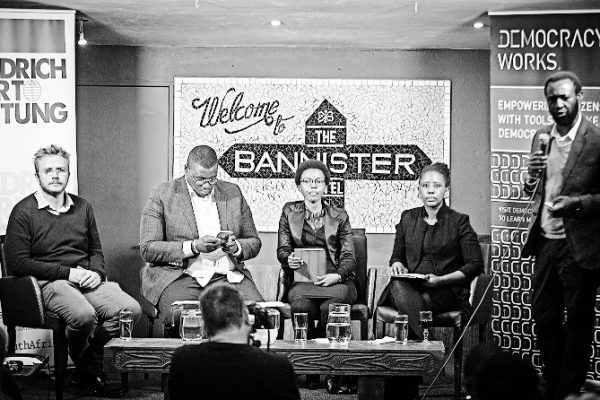In the face of escalating global climate challenges, Democracy Works Foundation (DWF) hosted a reflective joint convening on the intersection of climate change and political parties in South Africa.
The convening, themed Towards Inclusive and Responsive Democratic Governance and Development: Lessons from Participatory Approaches in Climate Governance in South Africa, brought together political actors, civil society, and environmental experts. The discussion centred on the role of political parties in addressing the pressing issue of climate change. As South Africa grapples with environmental degradation, energy crises, and socioeconomic disparities, the role of political leadership in driving climate action has never been more crucial.
Key reflections and outcomes focused on how the gains made from the European Union co-funded Fostering Inclusive Growth for Climate Change Champions or Climate for Growth project could illuminate how political parties can become pivotal players in the fight against climate change.
Background on Climate Change in South Africa
South Africa, as a developing nation, is uniquely vulnerable to the impacts of climate change. The country faces various environmental challenges, including severe droughts, flooding, and unpredictable temperatures. These environmental changes threaten the natural ecosystem and the livelihoods of millions of South Africans, particularly those in marginalised communities. The energy sector, dominated by coal, significantly contributes to the nation’s greenhouse gas emissions, complicating the transition to a low-carbon economy. Despite these challenges, there is a growing recognition that effective climate action can drive sustainable development, reduce poverty, and create new economic opportunities.
The Role of Political Parties in Climate Action
Political parties are crucial in shaping national policies and driving legislative agendas. However, in South Africa, the integration of climate change into the political discourse has been uneven. While some parties have begun prioritising environmental issues, others remain focused on more immediate socio-economic challenges, often viewing climate action as a secondary concern. The recently launched DWF, Political Parties and Elections Support, aims to help bridge this gap by encouraging political parties to recognise climate change as an urgent and cross-cutting issue that demands immediate and sustained attention.
Reflections on the Climate for Growth (FIGCCC) project
The reflections shared on participatory climate governance provided an insightful look into the approaches, successes, and lessons learned by the Climate for Growth team, specifically sharing lessons on the importance of promoting community participation in Climate mitigation through a culture of co-creation.
Mainstreaming Climate Policy Across Party Agendas
One of the discussions centred on the need for political parties to mainstream climate policy within their broader political agendas and manifestos. Under the recently launched Political Parties and Elections Support programme implemented by DWF, external experts were tasked to analyse South Africa’s 2024 Political Parties’ Elections Manifestos. The results revealed that most political parties did not mention climate change adaptation, or mitigation. These insights echoed what most climate actor have been saying for a while – that climate change should not be siloed as a purely an environmental issue but should be integrated into economic, social, and development policies. This approach requires political parties to articulate clear positions on climate change and to propose concrete actions that align with South Africa’s commitments under the Paris Agreement.
Outcomes and Next Steps
Climate change is a complex, multi-faceted issue that requires a coordinated approach. This convening underscored the need for political parties to engage in partnerships that can leverage resources, knowledge, and expertise to implement effective climate policies. Such collaborations are also essential for holding political parties and citizens accountable for their climate sustainability commitments.
This joint convening resulted in several key outcomes that are expected to be integrated into the Political Parties and Elections Support programme, in alignment with the programme’s outcome for political parties to develop responsive and evidence-based policy-making skills and practices around climate adaptation.








